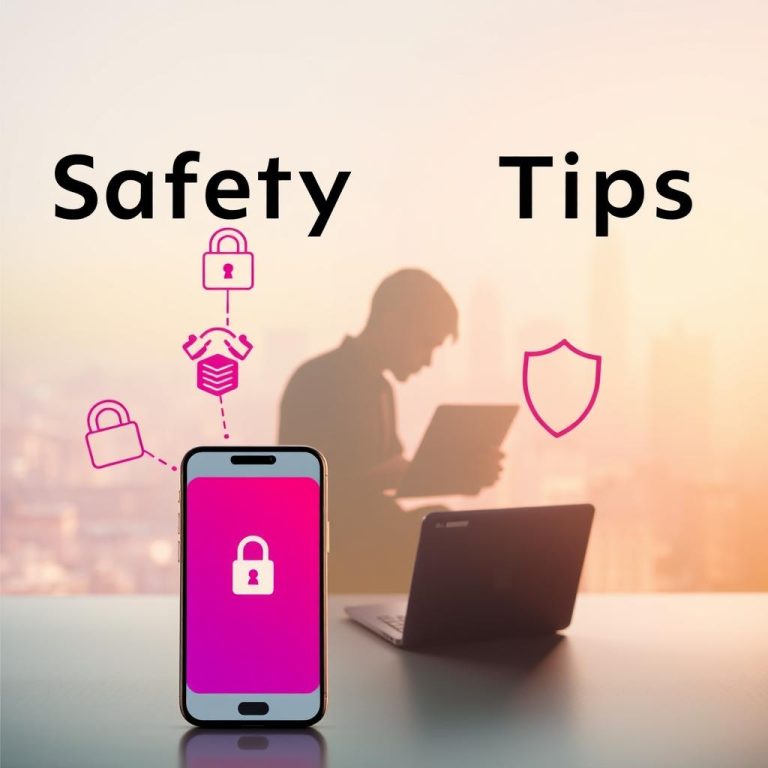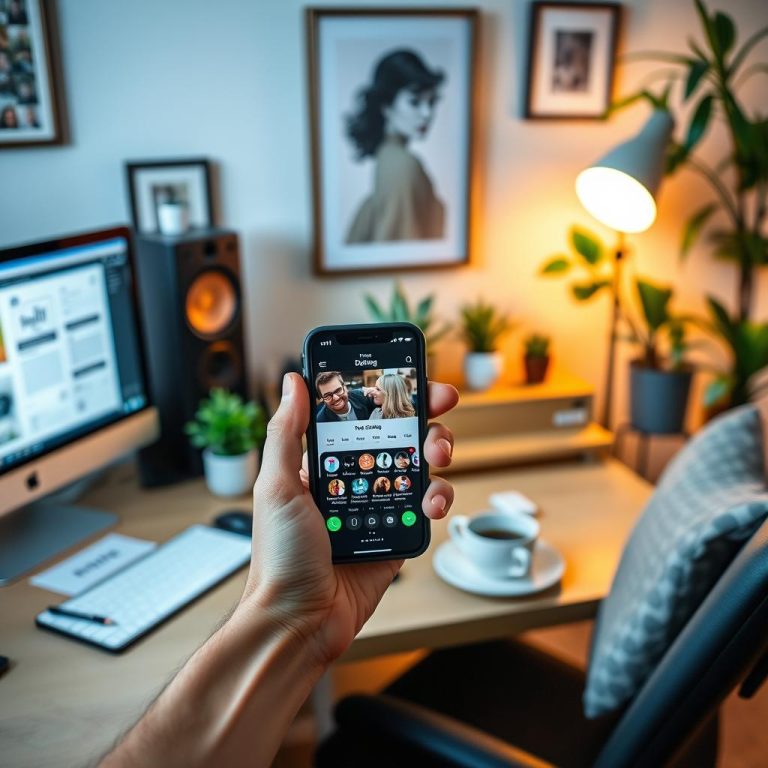The Best Fluffy Pancakes recipe you will fall in love with. Full of tips and tricks to help you make the best pancakes.

Building a strong emotional connection is key for meaningful relationships. Learning to connect emotionally early on can change how you interact with others. It’s important for partners to spend time understanding each other’s feelings.
Real emotional connections go deeper than just talking. They need true openness, listening, and a desire for real connections. The beginning of a relationship is the best time to start building a strong emotional base.
Building a lasting relationship takes time and effort. It’s about talking openly, being empathetic, and really getting to know each other. By focusing on emotional intelligence and meaningful interactions, you can build strong bonds that last through tough times.
Key Takeaways
- Prioritize genuine communication from the start
- Practice active and empathetic listening
- Create a safe space for emotional vulnerability
- Invest time in understanding your partner’s emotional needs
- Develop consistent emotional presence
Understanding the Foundation of Emotional Connections
Emotional connections are the base of strong relationships. They go beyond simple talks, creating deep and lasting ties between people. To build rapport, you need to understand human emotions well.
Our ability to connect emotionally comes from complex psychological processes. These processes help us feel and respond to others’ feelings with real empathy.
The Psychology Behind Strong Bonds
Emotional intelligence is key in forming strong bonds. Researchers have found important psychological principles for meaningful relationships:
- Neurochemical responses that trigger trust
- Empathetic listening skills
- Nonverbal communication patterns
- Vulnerability and authentic sharing
Components of Lasting Connections
Good relationships need several parts working together:
- Emotional awareness: Knowing your and others’ feelings
- Active listening and validation
- Consistent communication
- Mutual respect and trust
Why Early Connections Matter
Starting emotional connections early lays a strong foundation. When people take time to understand each other’s feelings, they build lasting bonds. These bonds can face challenges and come out stronger.
“Emotional intelligence is the key to both personal and professional success in building rapport.” – Daniel Goleman
The Role of Emotional Intelligence in Building Relationships
Emotional intelligence changes how we connect with others. It’s about knowing and managing our feelings and understanding others’. This skill is key for building strong relationships.
To grow emotional intelligence, we need to practice. Important parts include:
- Knowing our own emotional patterns
- Understanding others’ feelings and views
- Controlling our emotions well
- Talking effectively
Those with high emotional intelligence make deeper connections. They pick up on subtle emotional signs, respond with real understanding, and make safe spaces for openness. This skill helps build trust and rapport easily.
Emotional intelligence is not about being perfect, but about being genuinely present and responsive in relationships.
Emotional intelligence brings many benefits. It leads to better careers, stronger relationships, and more happiness in life. By being empathetic and reflective, we can improve our emotional intelligence and make more meaningful connections.
Improving emotional intelligence is a lifelong journey. Begin by listening actively, accepting feelings without judgment, and showing real interest in others’ emotional lives.
Creating a Safe Space for Vulnerability

Building intimacy means making a space where you can be open emotionally. Trust grows when you feel heard and accepted without being judged. When partners feel safe, they can share their true feelings, deepening their bond.
Vulnerability is not weakness; it’s being brave enough to open up. Experts in relationships say real connections come from sharing who we truly are.
Signs of Emotional Safety
Knowing when you’re in a safe emotional space is important. Look for these signs:
- Listening without criticizing
- Always being empathetic
- Respecting each other’s boundaries
- Validating each other’s feelings
Breaking Down Defense Mechanisms
Defense mechanisms can stop us from being vulnerable. Emotional walls are built to protect us, but they keep us from true closeness. Understanding these barriers helps us build more open relationships.
Building Trust Through Consistency
Trust comes from being reliable and supportive. Small, consistent actions show you’re committed. Relationship experts say being open and dependable in your words and actions is key.
By focusing on vulnerability and creating safe emotional spaces, couples can build a strong, meaningful bond.
Mastering the Art of Active Listening
Active listening is a key skill for better communication. It’s more than just hearing words; it’s about fully engaging with what the speaker says and feels. Learning active listening can make our relationships stronger and our understanding deeper.

Good communication is not just about hearing. It’s about being fully present in the conversation.
Non-verbal Communication Cues
Understanding non-verbal signals is key in active listening. Body language shows a lot about how someone feels:
- Maintain appropriate eye contact
- Use open body postures
- Lean slightly forward to show engagement
- Avoid crossing arms or displaying defensive positions
Reflective Listening Techniques
Reflective listening shows you get what the speaker is saying. It’s about validating their feelings. Here are some ways to do it:
- Paraphrase what the speaker said
- Ask questions to clarify
- Give verbal nods of agreement
- Sum up the main points
Avoiding Common Listening Mistakes
| Common Mistake | Better Approach |
|---|---|
| Interrupting | Wait for a natural pause |
| Planning your response | Focus on the speaker |
| Judging | Practice empathy |
| Giving unsolicited advice | Ask if they want your help |
Getting good at active listening takes time, effort, and a real interest in others.
Developing Empathy and Understanding

Empathy is key to strong relationships. It’s more than just hearing words. It’s about connecting deeply and understanding someone’s feelings.
To grow empathy, try these steps:
- Practice active listening without judgment
- Ask open-ended questions that invite deeper sharing
- Validate others’ feelings even when they differ from your own
- Reflect on personal experiences that help you relate
“Empathy is seeing with the eyes of another, listening with the ears of another, and feeling with the heart of another.” – Anonymous
Building a personal connection needs emotional smarts and real interest in others. When we show compassion, we build trust and foster deeper bonds.
Real empathy means noticing emotional subtleties and being sensitive. It’s not about solving problems but creating a supportive space where people feel valued.
Begin by being mindful. Notice non-verbal signals, emotional undertones, and the context of someone’s words. This turns everyday chats into chances for real connection.
Sharing Meaningful Experiences Together
Building rapport is more than just talking. Sharing experiences creates strong bonds and deepens emotional understanding. When we do things together, we form a special connection that goes beyond usual chats.

To make lasting memories, we need to put in effort and be creative. Good relationships are built on shared moments that excite and touch our hearts.
Creating Memorable Moments
Meaningful experiences can change relationships for the better. They help us:
- Start spontaneous talks
- Make jokes and stories just for us
- Find things we both love
- Trust each other by being open
The Power of Shared Activities
Choosing the right activities can bring us closer. Here are some ideas:
- Weekend trips to explore
- Cooking classes to learn together
- Learning a new skill
- Helping out through volunteer work
Building Common Ground
Finding things we both like is key to deeper connections. Being real and engaging is more important than being perfect. We aim for real talks and true feelings that bring us closer.
“Relationships grow through shared experiences, not just shared spaces.” – Relationship Experts
Nurturing Emotional Intimacy Through Daily Actions
Building intimacy takes time and effort. It’s not something that happens quickly. Instead, it grows through small, meaningful moments that add up over time.

Creating a strong emotional bond starts with everyday moments. These moments can be turned into chances for real connection.
Small Gestures That Make Big Impact
Grand gestures aren’t needed to build emotional intimacy. Small, caring actions speak volumes:
- Send unexpected supportive text messages
- Remember specific details about their day
- Offer genuine compliments
- Show physical affection through gentle touches
Creating Daily Connection Rituals
Rituals make emotional bonds stronger. They create moments of closeness that feel predictable:
| Ritual Type | Connection Strategy |
|---|---|
| Morning Check-in | Share morning thoughts and intentions |
| Evening Reflection | Discuss day’s highlights and challenges |
| Weekly Date Night | Dedicated uninterrupted quality time |
Maintaining Emotional Presence
True connection needs active listening and real interest. Turn off distractions, keep eye contact, and show you care about what they say and feel.
By making these habits part of your daily life, you’ll build a strong emotional bond. This bond will grow and get stronger over time.
Conclusion: Building Long-lasting Rapport
Building emotional connections is a journey that needs effort and commitment. It’s not just about reaching a goal, but about growing and respecting each other. Open communication is key to forming strong, lasting bonds.
This guide has shown us how to turn simple talks into deep connections. By improving emotional intelligence and listening well, we can build real, lasting relationships. It’s all about being open and creating safe spaces for each other.
Building strong relationships takes time and effort. Every interaction is a chance to grow closer and understand each other better. By focusing on real communication, our relationships can grow and become more meaningful.
Sustaining Connection Over Time
Keeping emotional connections strong takes ongoing effort. Regular talks, shared moments, and respect are essential. Remember, building connection is a skill that gets better with practice and real intention.
Deepening the Bond
True closeness comes from being curious, empathetic, and open to growth. By always trying to understand each other, our bonds can grow stronger and deeper over time.
Moving Beyond Surface-level Interactions
To go beyond small talk, be brave, listen actively, and show real care. True connections happen when we’re sincere and emotionally smart in our relationships.



